Hello! I am excited to share with you my top 9 book choices for 2024.
As an avid reader, I always prepare a list of books to read throughout the year. This year is no different, and I have compiled a list of books that I believe will be worth reading. The list includes new releases, planned releases, and other interesting resources that might be appealing.
Without further ado, here are my top 9 book choices for 2024:
1 - Azure OpenAI for Cloud Native Applications
This wouldn't be a 2024 list without starting with an OpenAI suggestion.
Microsoft AI specialist Adrian Gonzalez Sanchez provides a comprehensive guide to building cloud-native applications and solutions using the Azure OpenAI Service. The guide focuses on integrating and utilizing Azure OpenAI, incorporating powerful generative AI models like GPT-3.5 Turbo and GPT-4 within the Microsoft Azure cloud computing platform. Sanchez walks readers through technical details, covering the setup of Azure resources, end-to-end architecture preparation, API utilization, cost and usage management, data privacy and security considerations, and performance optimization. The guide explores diverse use cases, demonstrating how Azure OpenAI's language model can be applied in natural language processing, chatbots, content generation, translation, sentiment analysis, and more.
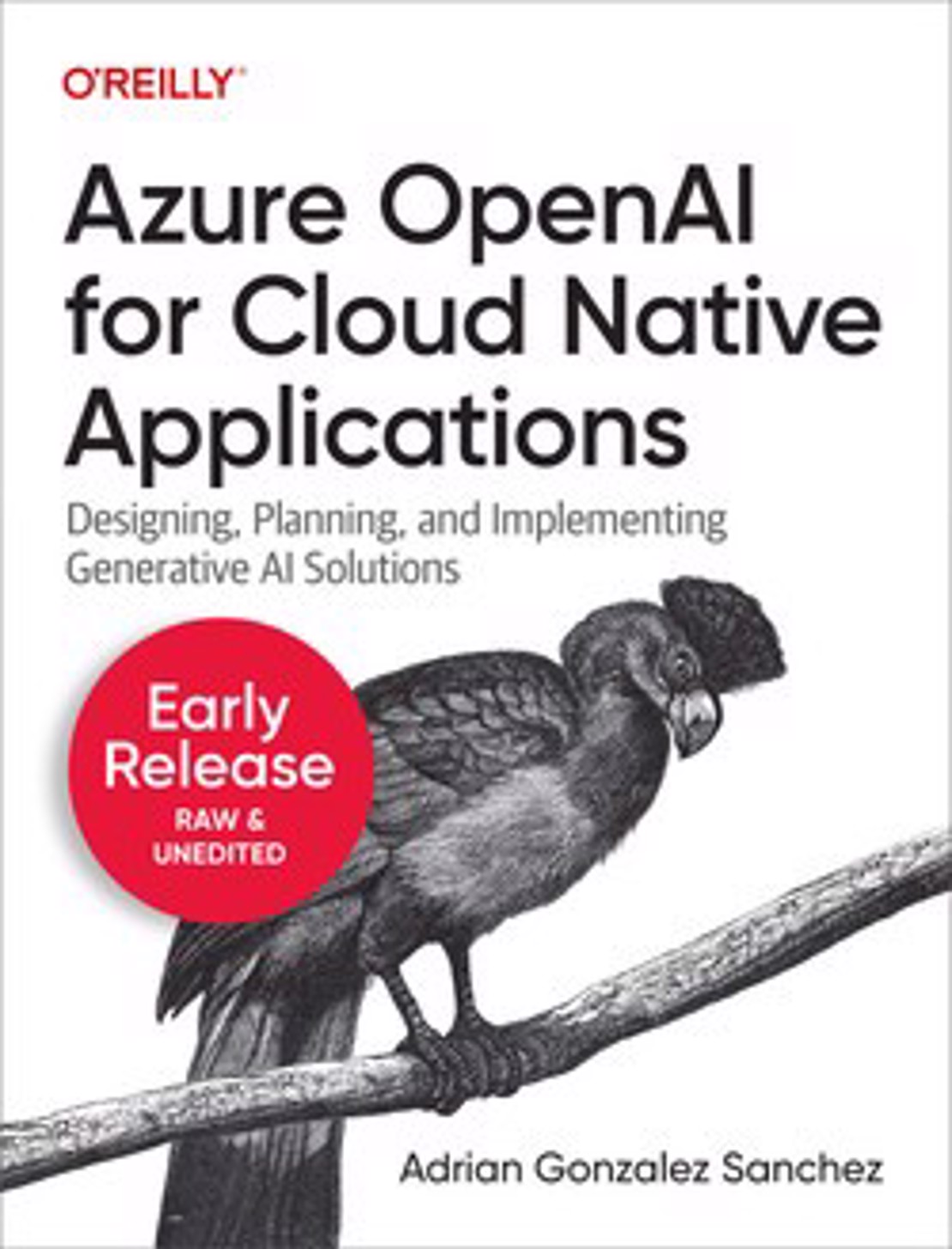
2 - Generative AI in Action
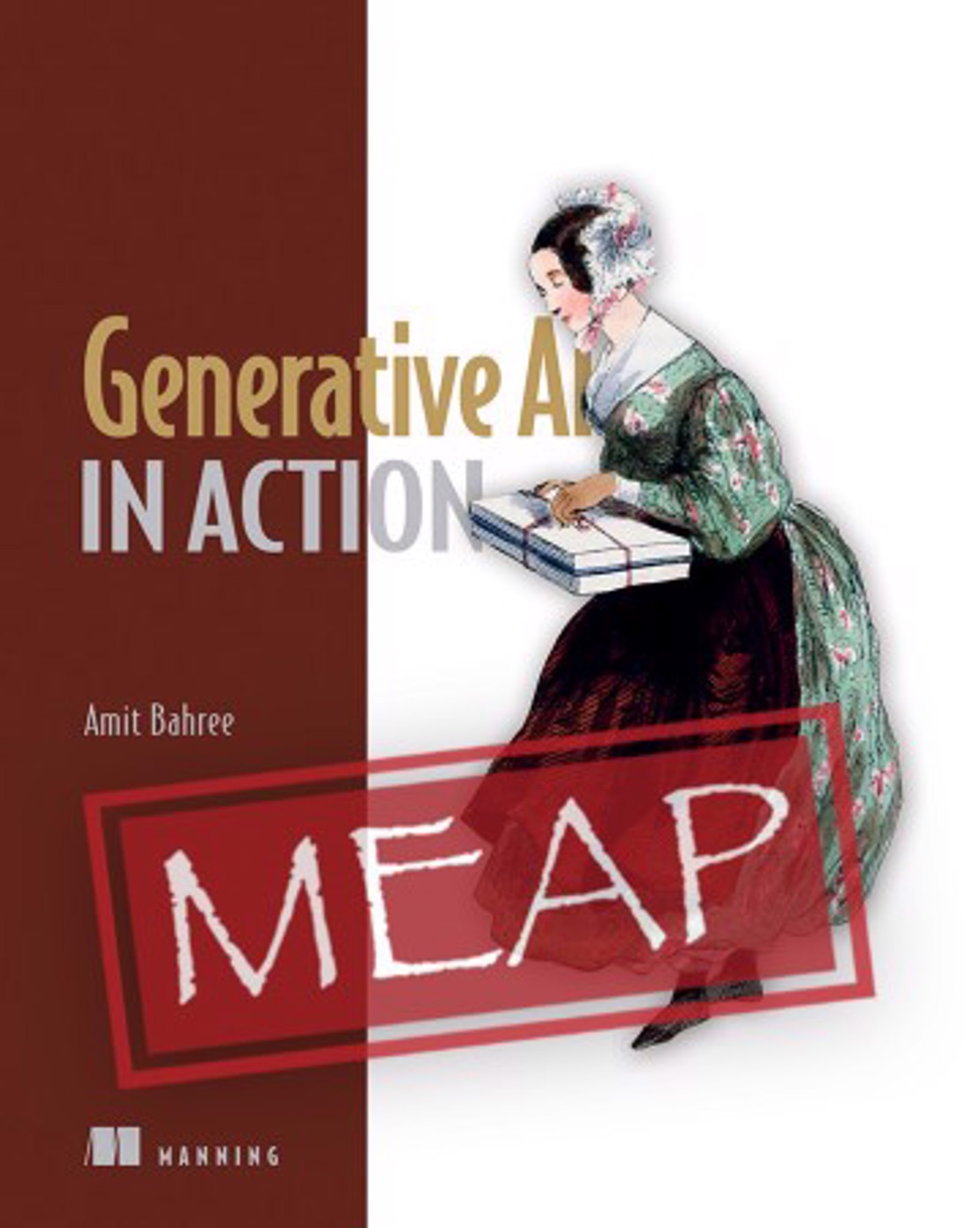
Continuing the same topic, and I promise it's the last one.
By Manning Publications, written by my colleague Amit Bahree.
In "Generative AI in Action," Amit offers a practical guide to leveraging generative AI tools, including ChatGPT, Bard, and Stable Diffusion, for diverse applications such as product catalog creation, marketing campaigns, technical reporting, and more.
Drawing from his extensive experience leading Generative AI projects at Microsoft for nearly a decade, Bahree provides a comprehensive overview of generative AI applications, architectural patterns, integration guidance, and best practices. The book goes beyond current GPT revolution hype, focusing on real-world use cases and delivering experience-based advice on incorporating AI into products and processes.
3 - Fundamentals of Enterprise Architecture
Taking a look at Architecture topics, how about take a look at how to approach entreprise architecture?
In Fundamentals of Enterprise Architecture, Tanu McCabe, an Executive Distinguished Engineer at Capital One, offers a practical guide to navigate the increasing complexity of modern cloud-based systems through the establishment of an effective enterprise architecture program. The book provides proven frameworks and practices that empower software and enterprise architects to formulate and implement robust architecture strategies.
Emphasizing the importance of creating shared alignment between business and technology, McCabe guides readers in embedding architecture practices into processes and tools. The book advocates for a proactive and reactive approach to both technological and business trends, fostering contextual understanding over siloed decision-making. McCabe shares valuable insights, complete with examples of patterns and antipatterns, along with reusable templates, assessment tools, and practical advice.
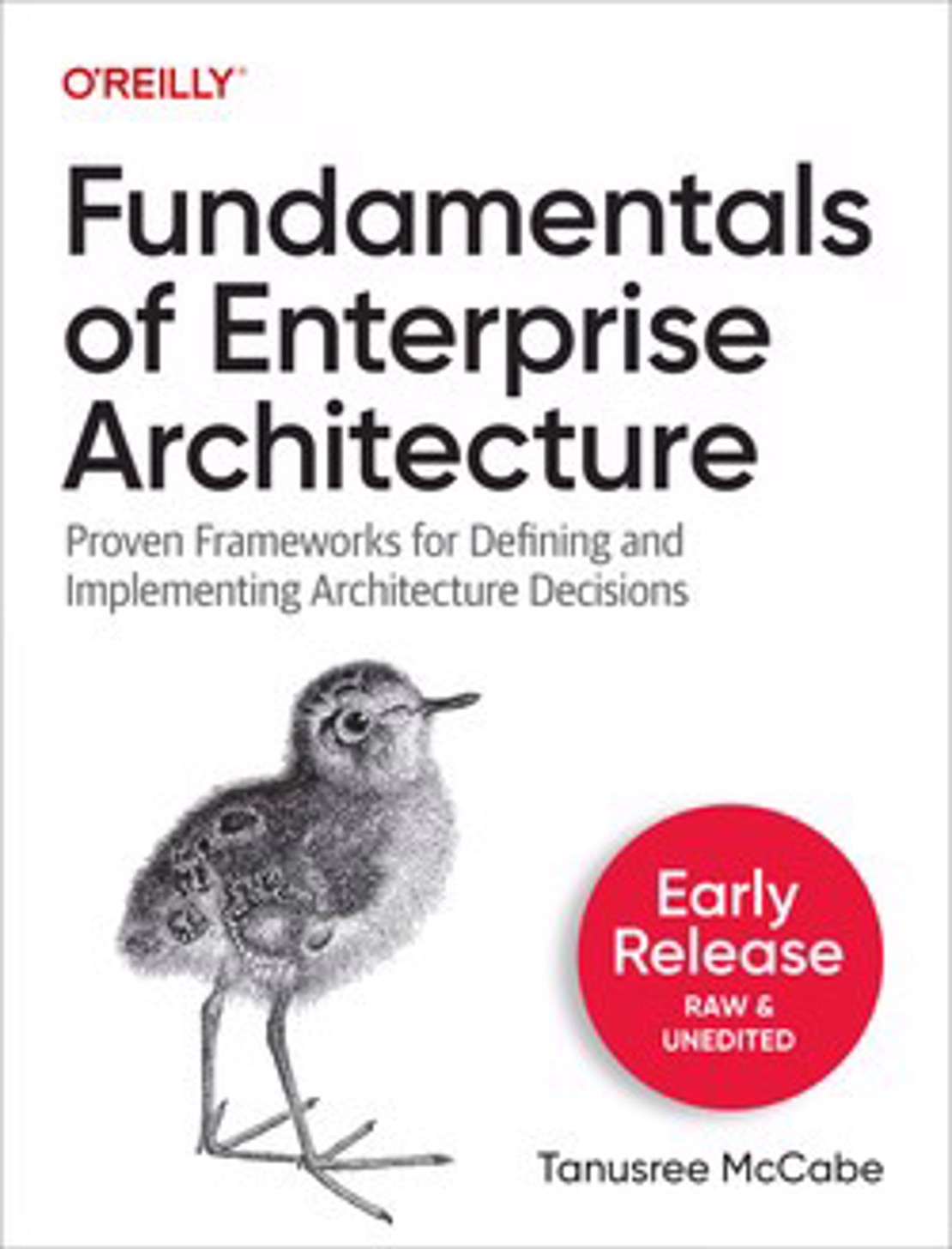
4 - Enabling Microservices Success
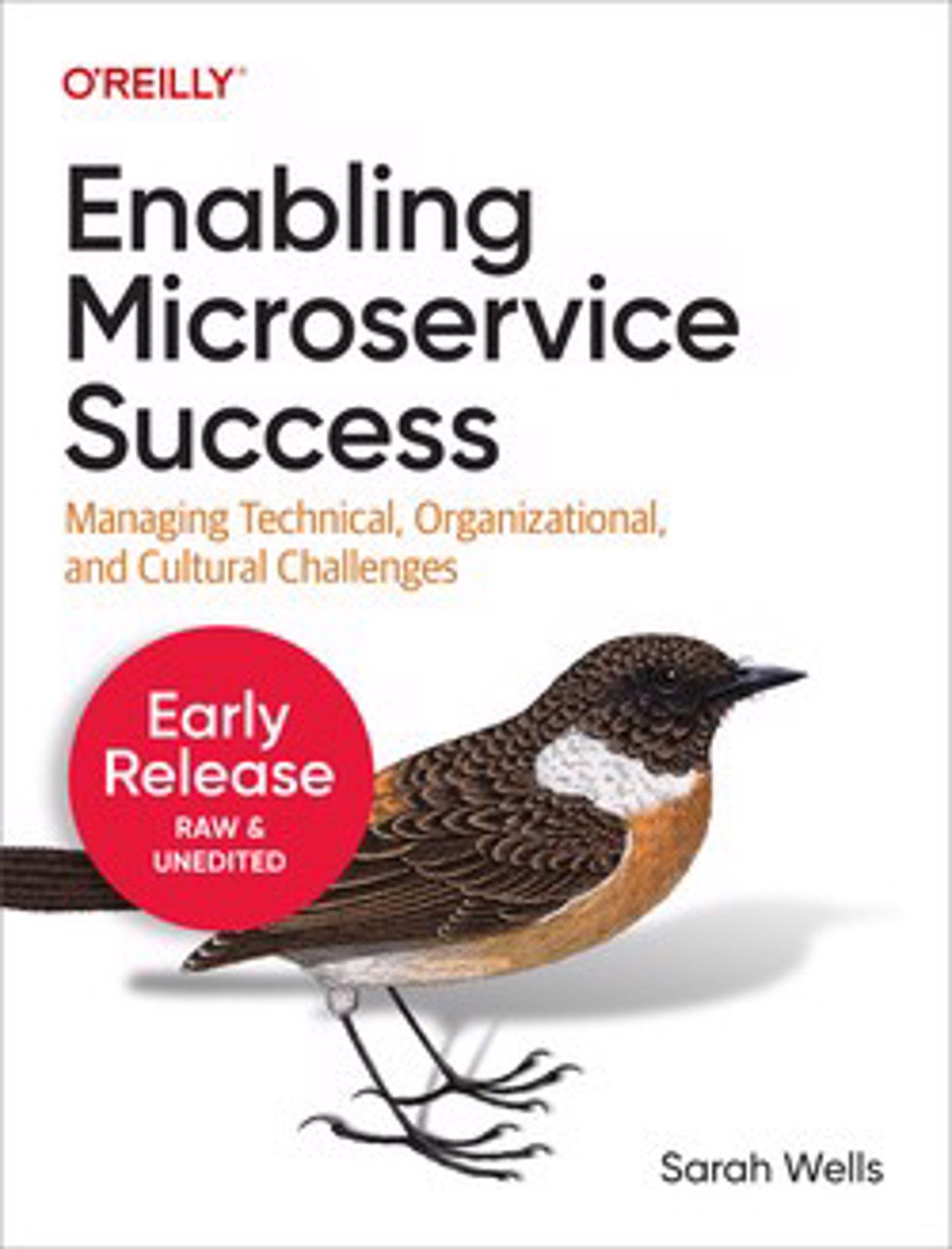
Think you heard everything on Microservices? Microservice architecture is still an issue for a lot of enterprises.
In Enabling Microservices Success, technical strategist Sarah Wells provides a comprehensive guide to adopting microservices effectively, emphasizing the potential benefits and challenges associated with this approach.
Acknowledging the ability of microservices to enable rapid changes to small parts of a system multiple times a day, Wells underscores the need for precision in implementation. Drawing from her experience in building the Financial Times' first microservices architecture in 2013, Wells offers practical and in-depth advice for navigating the complexities of microservices.
5 - Microsoft Azure in Action
Already had to opportunity to act as a initial reviewer for this book, and I have to say it was a refreshing take on both the content and delivery, I highly recommend it.
"Microsoft Azure in Action" is a practical guide designed to accelerate the process of creating and managing applications on the Microsoft Azure cloud platform.
Authored by Azure expert Lars Klint, the book provides a hands-on approach to learning key aspects of Azure, covering the foundational pillars of compute, networking, and storage. The book is tailored for developers familiar with some cloud basics and aims to teach both the "how" and "why" of each Azure service in a lighthearted tone that prevents technical details from becoming dull.
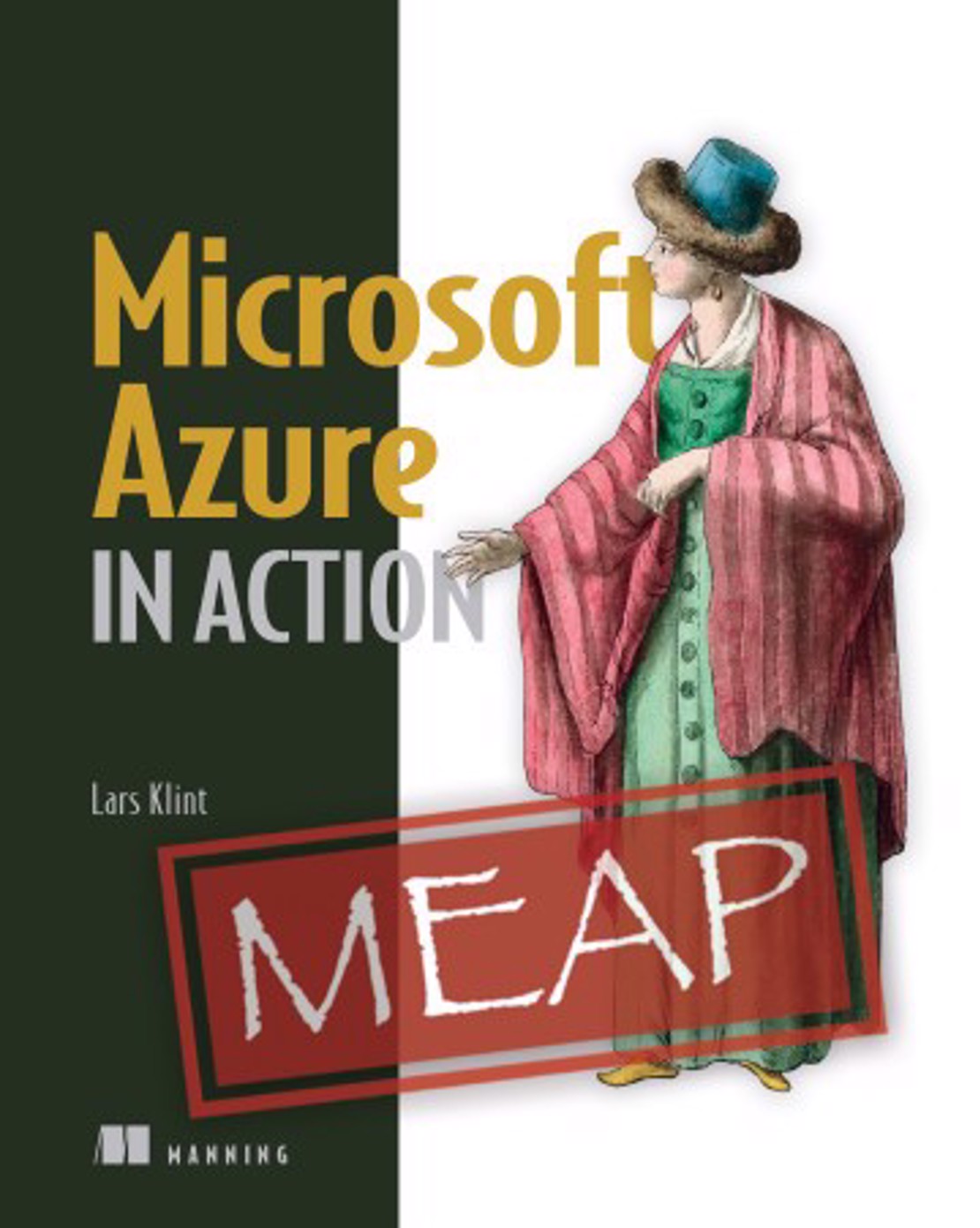
6 - Deciphering Data Architectures
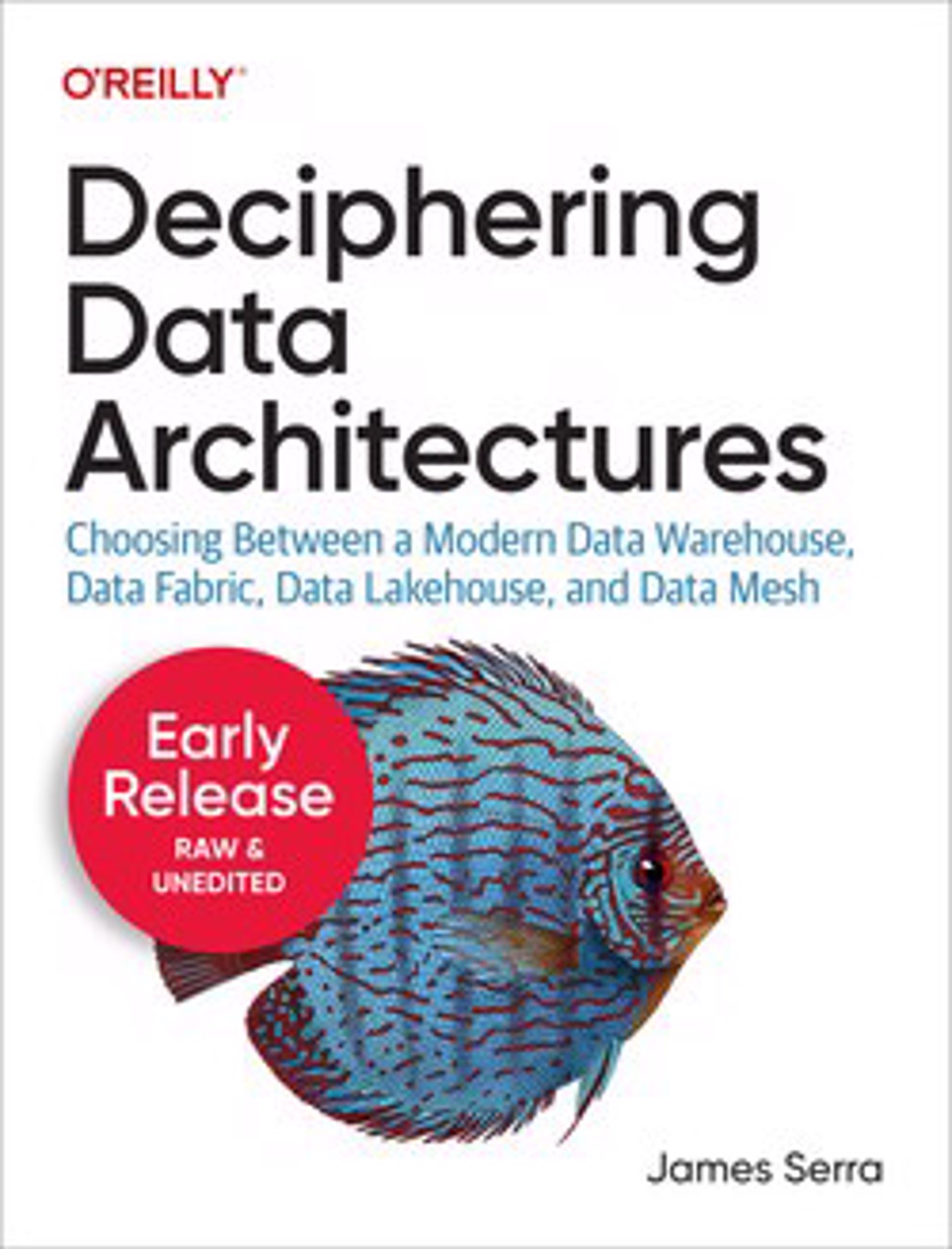
In Deciphering Data Architectures, James Serra, a big data and data warehousing solution architect at Microsoft, provides a practical guide to navigating the landscape of modern data architectures. The book addresses the emergence of data fabric, data lakehouse, and data mesh as alternatives to the traditional data warehouse, offering a clear exploration of their respective benefits and challenges.
Serra aims to demystify these architectures by examining common data architecture concepts, particularly how data warehouses have evolved to integrate with data lake features. Readers gain insights into the capabilities of data lakehouses and learn to distinguish between the hype and reality surrounding data mesh.
The book equips data professionals with a working understanding of various data architectures, enabling them to assess the pros and cons of each approach. Serra guides readers in distinguishing between data architecture theory and its practical implementation, facilitating the selection of the most suitable architecture for specific use cases.
7 - Learning DevSecOps
For career reasons I've been increasing my focus on DevOps, Scurity and SRE topics, therefore I believe this is a good book to pick some of the lastest trends.
Steve Suehring addresses the challenges organizations face in integrating security seamlessly into continuous deployment processes, maintaining 24/7 operations at internet scale, and incorporating security into DevOps structures. The practical guide focuses on providing unique insights for both practitioners and leadership to successfully implement DevOps and DevSecOps.
Emphasizing prerequisites for success, Suehring explores best practices and introduces the tools and software utilized by organizations that have effectively embraced DevSecOps.
The book underscores that DevSecOps is more than just a set of tools—it's about cultivating a culture and refining processes that support security throughout the development lifecycle. Suehring explains why DevSecOps practices are essential for deploying software in a 24/7 environment, breaking down the traditional walls between development, operations, and security teams.
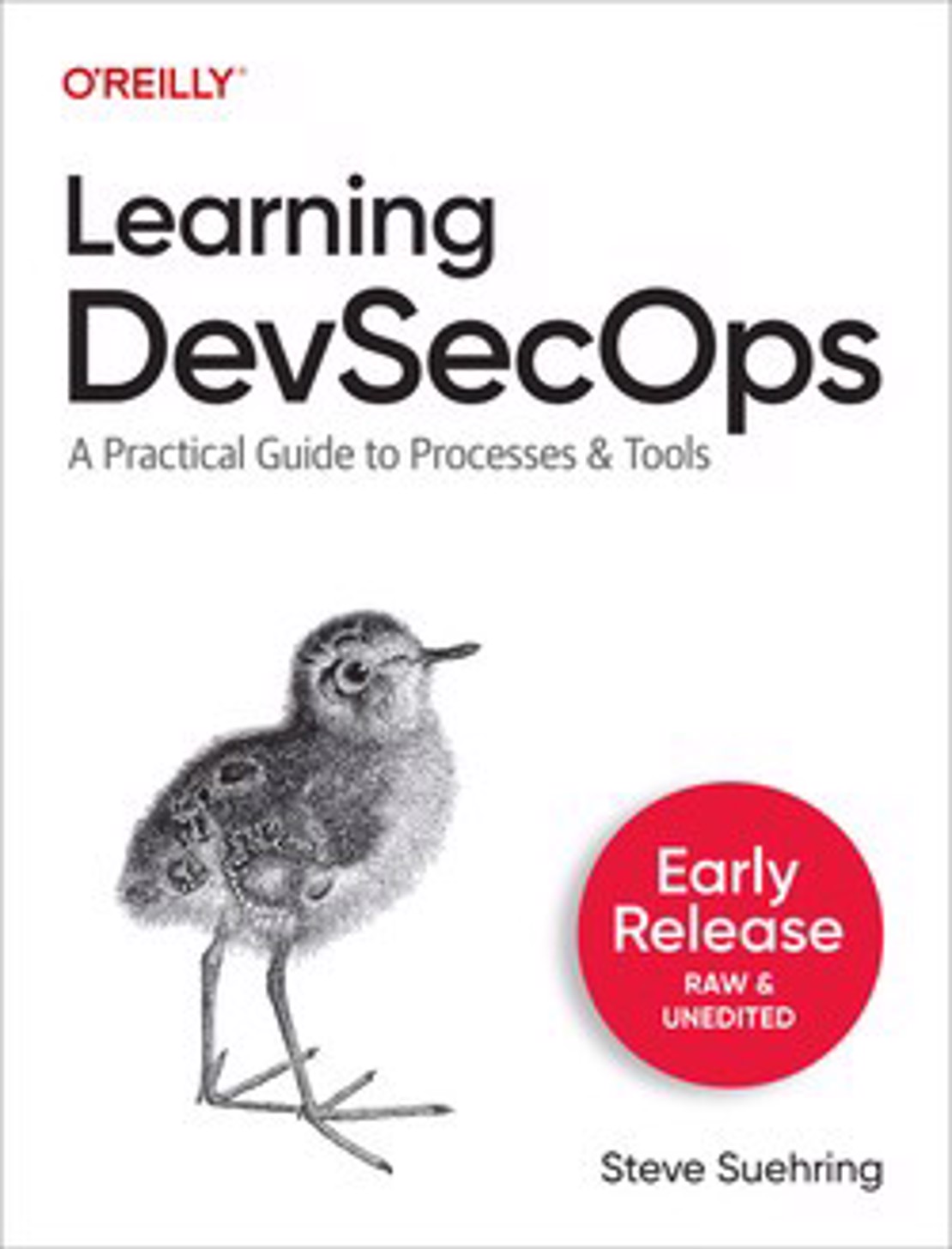
8 - Zero Trust Networks, 2nd Edition
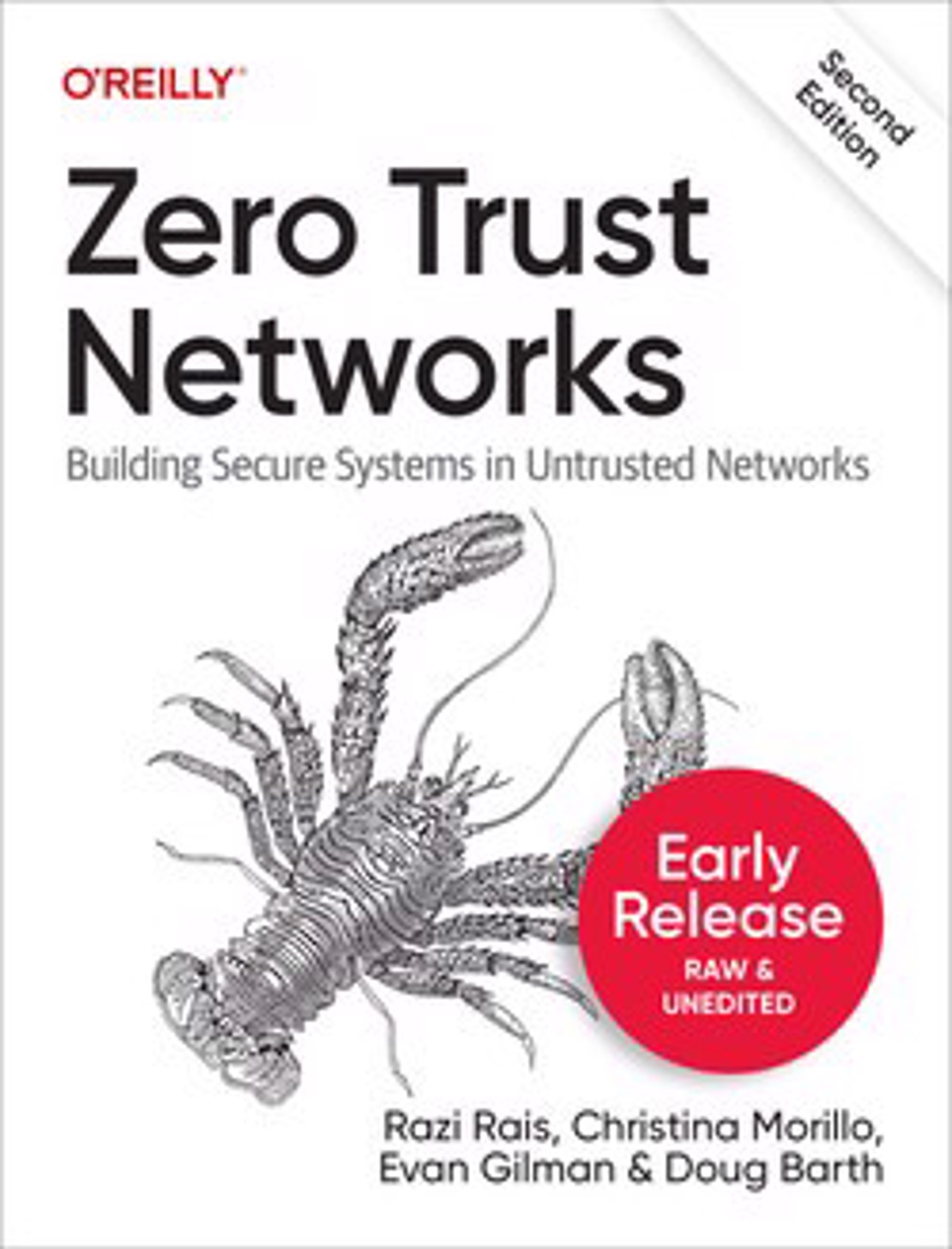
Google has defined the Systems Reliability Engineer hiring profile as someone who fulfill almost up to 100% of the Software Engineer skill set but also knowledge in network layers. This book allows you to deepen your knowledge in both security and networking which is a really important asset.
In the updated edition of "Zero Trust Networks," the authors dismantle the notion of traditional perimeter defenses as foolproof security measures.
They introduce the zero trust model, a paradigm that treats all hosts within a network as potentially compromised, regardless of their location behind firewalls. The book emphasizes that relying solely on perimeter defenses is insufficient, as hosts within the trusted zone can become vulnerable, allowing unauthorized access to the data center.
The zero trust model advocates for treating every host as if it were internet-facing, necessitating a comprehensive approach to building strong authentication, authorization, and encryption across the entire network.
9 - Leading Effective Engineering Teams
Last but not the least, as usual, a non technical book that can influence your career.
Leading Effective Engineering Teams by Addy Osmani provides a comprehensive guide drawn from over a decade of experience working on the Chrome team at Google.
The book is tailored for engineers and engineering leaders seeking to enhance their effectiveness, efficiency, and team success. Osmani shares essential principles, tips, and frameworks to help build highly effective engineering teams, catering to a wide range of organizations and sizes. The focus is on fostering engineering excellence, and Osmani presents best practices and proven strategies through practical advice and real-world examples.
The book's key themes include the cultivation of trust, commitment, and accountability within engineering teams, providing strategies to minimize friction, optimize career growth, and deliver maximum value. Osmani explores the dynamics of highly successful engineering teams and offers insights on replicating their achievements.
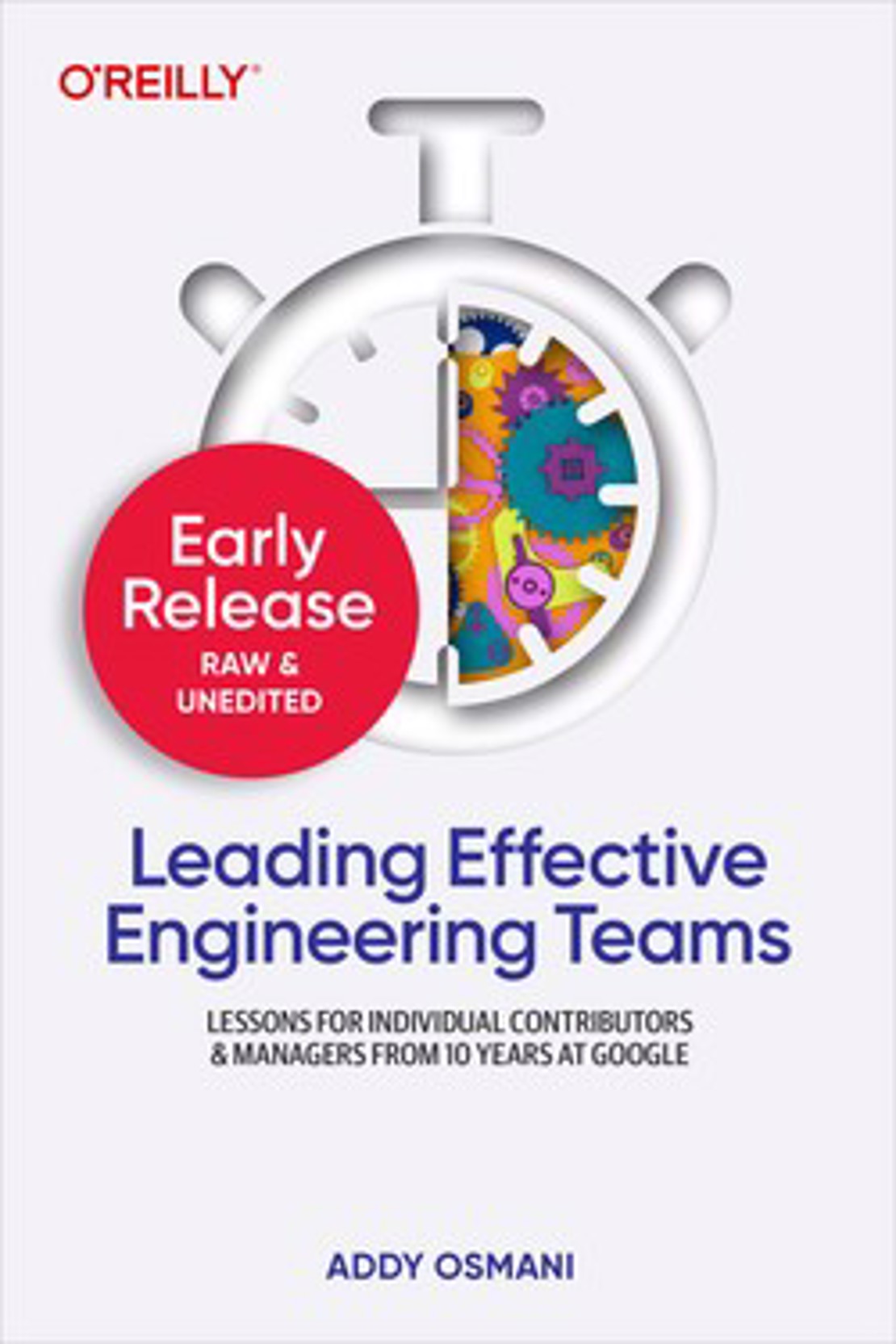
Happy Readings!
 Filipe Teixeira
Filipe Teixeira







